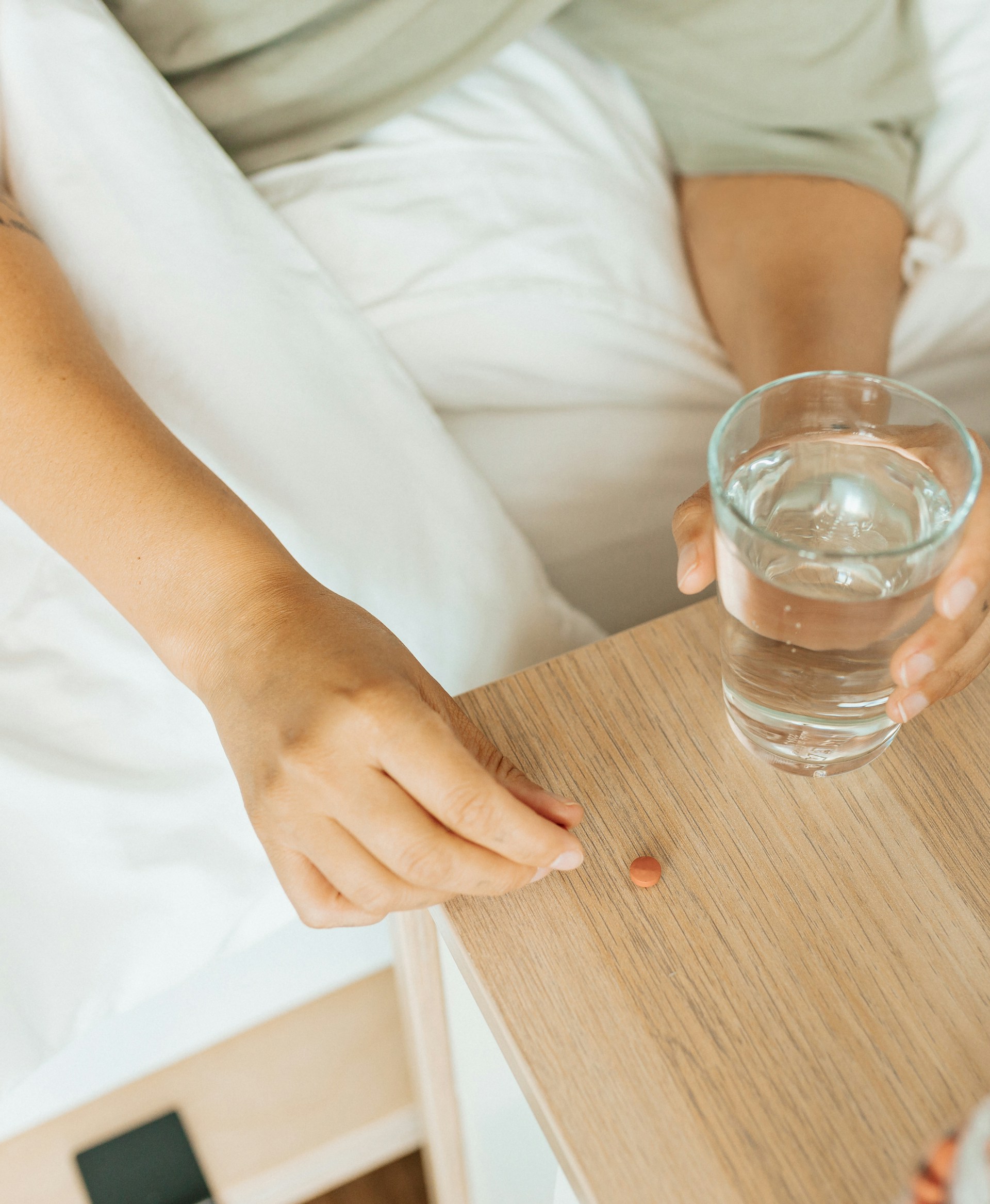Prescription Drug Addiction
Table of Contents
Risks of Using Prescription Drugs
Tolerance
When someone struggles with prescription drug addiction and frequently takes high doses of a drug, they will build a tolerance to it. After awhile, tolerances increase as well, which creates a situation in which people have to continually take higher and higher doses to experience the effects they initially enjoyed after their first use.
Physical Dependence
Prescription drug addiction can be caused by a physical dependence on the drug. A physical dependence will often result in drug withdrawal symptoms if someone suddenly stops taking the drug, which can make it feel like you can’t function normally without the drug.
Addiction
Prescription drug misuse can cause an addiction to develop. When someone is addicted to a prescription drug, they will likely continue to use it even though it is having negative consequences in their life. Addiction can negatively affect someone in many ways, but it can be treated.
Using Illegal and Recreational Drugs
When someone struggles with prescription drug addiction, there is a higher chance that they may also try to experiment with other illegal and recreational drugs. This can lead to polysubstance abuse where someone becomes addicted to many different substances and can worsen the addiction to prescription drugs.
Our Luxury Detox & Rehab in California is Here For You Along Your Wellness Journey

Who is at Risk for Prescription Drug Addiction?
Many factors can put someone at risk of developing a prescription drug addiction. Things like genetics, illness, family history, and other underlying conditions can contribute to and worsen an addiction.
Genetics
Scientific studies have found that genetics can play a role in someone being more prone to addiction. If you have a family history of drug addiction, it may be a sign that you are more susceptible to it as well.
Illness
When someone struggles with a serious illness, they may be prescribed prescription drugs to help treat the symptoms. However, some people prescribed these medications may misuse the substance which can lead to addiction.
Family History
If you have a family history of prescription drug addiction, it may be a sign that you are more prone to it as well. A family history of prescription drug misuse can also cause someone to grow up in an environment where they will be exposed to it and have easier access to addictive substances.
Pre-Existing Psychiatric Conditions
Pre-existing psychiatric conditions or mental health issues can also be a contributing factor to addiction. Studies have found that about half of all people with a substance use disorder also struggle with a diagnosable mental illness. When receiving treatment, it’s important to pay attention to the possibility of a dual diagnosis so that all conditions can be treated at the same time.
Who is at Risk for Prescription Drug Addiction?
Opioid Health Risks
Stimulant Health Risks
- Chronic insomnia
- Extreme weight loss
- Heart failure
- Increased blood pressure
- Irregular heartbeat
- Nutritional deficiencies
- Seizures
- Skin discolorations
Anti-Depressant Health Risks
- Erectile dysfunction
- Feeling emotionally numb
- Feeling foggy or not like yourself
- Minimal positive feelings or joy-filled moments
- Suicidal thoughts or actions
- Weight gain
Co-Occurring Health Risks Associated with Prescription Drug Misuse
When someone struggles with prescription drug addiction, they may also have other co-occurring conditions that are affecting or contributing to the addiction.
Mental Disorders
Mental illness can often be a contributing factor to addiction and can make the problem worse. In treatment for prescription drug addiction, it’s important to determine if a patient may be struggling with mental health issues as well. Treating both the addiction and mental illness at the same time is important in order to get patients the best results.
Polysubstance Abuse
Many people who struggle with addiction to prescription drugs may also abuse other substances as well. Polysubstance abuse can worsen the addiction and treatment professionals must account for all substances that someone may be addicted to.
Escape Addiction For Good.
You do not have to face recovery alone. Reach out to Stillwater Behavioral Health to learn how to end the cycle of addiction and regain a hold of your life. Fill the form and one of our caring treatment coordinators will contact you shortly.
Open 24 hours, 7 days a week
(800) 840-7195
Contact Us

How to Prevent Addiction to Prescription Drugs?
Prescription drugs are useful for medical treatment and there are ways to prevent prescription drug addiction from occurring.
Get the Right Medication
When treating a medical condition, it’s important to work with your doctor so they can prescribe the right medication for you. If you are taking a medication and you feel it is having unwanted side effects, you should discuss it with your doctor so they can adjust your dosage or try prescribing a different medication.
Don’t Attempt to Self-Medicate
You must avoid self-medicating or using prescription drugs as a way to treat other issues like ongoing stress, mental health issues, or chronic pain. If you are experiencing any of these issues you should talk with your doctor about getting the right form of treatment for your needs rather than leaning on prescription drug use.
Follow Directions
When you are prescribed a medication, you must follow all directions and guidelines given to you by a medical professional to ensure safety and that you get the most benefit from the medication.
Know the Medication You Take
If you are prescribed a medication, take the time to learn about it and know what possible side effects it may have. If you have any questions or concerns you should discuss them with your doctor before taking a prescription medication.
Never Use Another Person’s Medication
Never use prescription medications that were prescribed to someone else. Medications are often prescribed in dosages based off of weight and other biological factors. If you take someone else’s medication, it can have many negative side effects. Always talk to your doctor and get their recommendation before trying to take a medication.
Preventing Teens from Prescription Abuse
Due to factors like peer pressure and wanting to experiment with substances, teens can be more susceptible to developing a prescription drug addiction. However, there are ways to ensure that teens use prescription medications responsibly to prevent prescription drug abuse in teens.
Discuss Dangers
If you have a teenager who is prescribed a prescription medication, discuss the dangers of prescription abuse in teens with them and make sure they are aware of all possible side effects.
Keep Medication Safe
If you or someone in your household is taking a prescription medication, try to keep it in a safe place to prevent teens or house guests from finding it. This helps ensure that only the person prescribed the medication uses it.
Prescription Access Control
Prescription access control policies are in place to help health care providers and pharmacies track data related to someone’s prescriptions and medical information. This helps prevent prescription abuse in teens to protect people’s health and well-being.
Properly Dispose Medication
To prevent prescription abuse in teens, make sure to properly dispose of medications when you are done using them. This helps prevent teens from finding them and taking them for recreational use.
Monitoring Physical and Mental Health
If you have a teenager, it’s important to monitor their physical and mental health since these conditions can make a teen more susceptible to prescription drug addiction. Check in with them at times to make sure they are doing ok and let them know you are there if they need to talk about anything.

Dual Diagnosis for Drug Abuse
If someone struggles with addiction, a dual diagnosis drug rehab facility can help. Addiction centers usually offer drug rehab options that can help with detox, drug withdrawal symptoms, and providing therapy to those who need support. Dual diagnosis drug rehab centers specialize in treating not only the addiction, but also any underlying conditions that may be contributing to the addiction as well.
Detox
MAT
During treatment, medication assisted treatment (MAT) may be used to help ease withdrawal symptoms and prevent a relapse from occurring. Many scientific studies have been conducted to develop medications that are effective as part of a treatment program.
Inpatient Care
Inpatient drug rehab is often a good option for treating prescription drug addiction. Inpatient drug rehab involves staying at a treatment facility for a duration of time while you detox, receive therapy, and work on a long-term plan for success. This is a good way to create a structured and supportive environment that leads to success.
